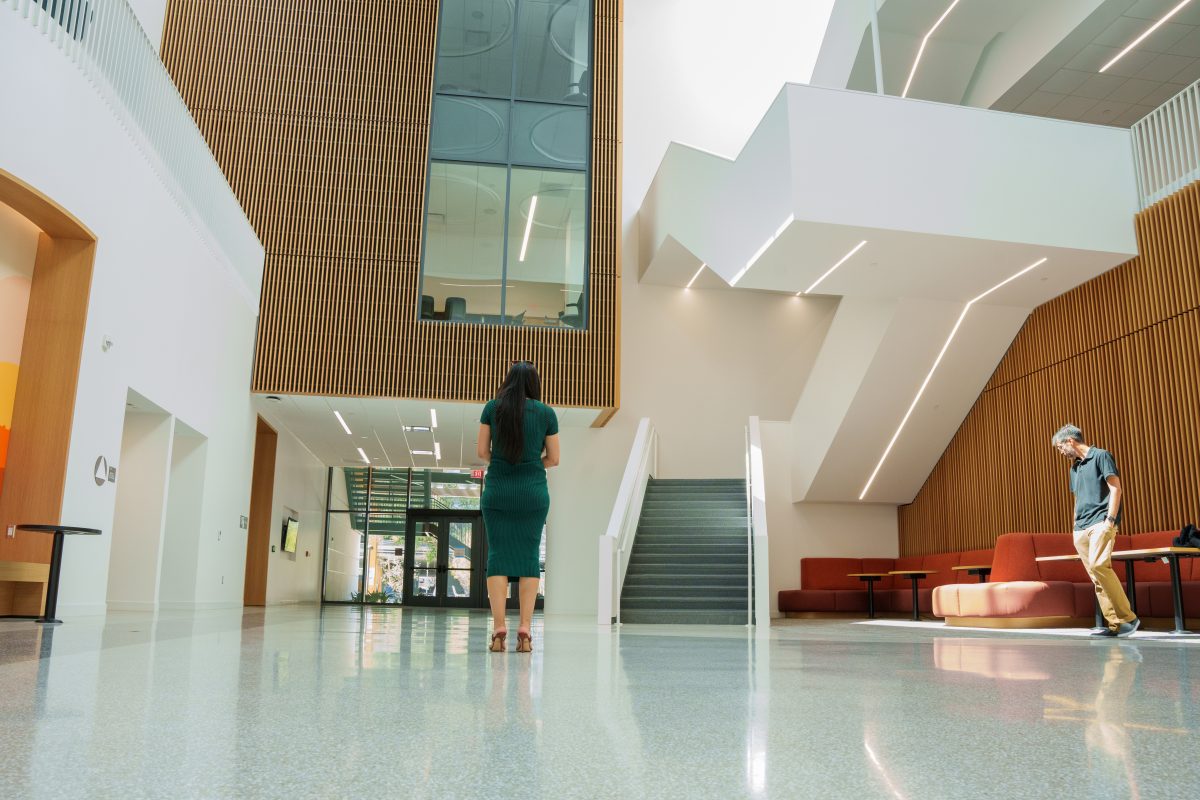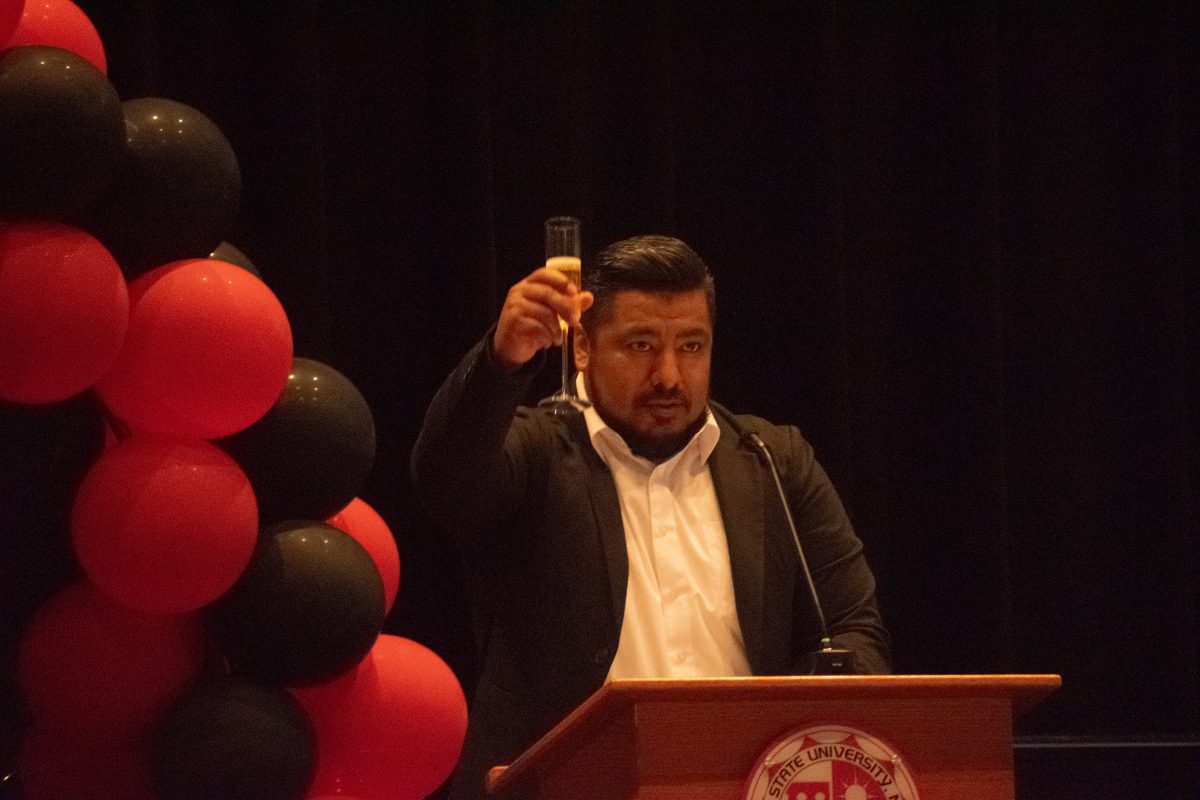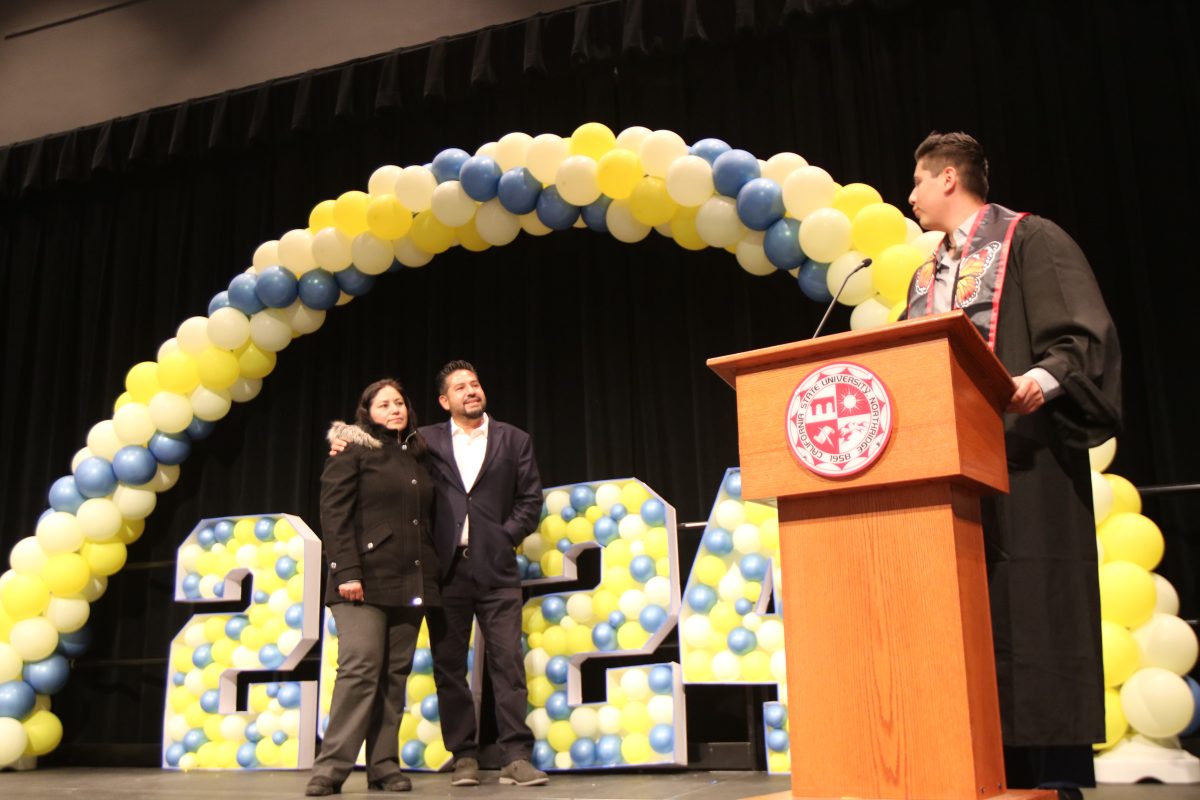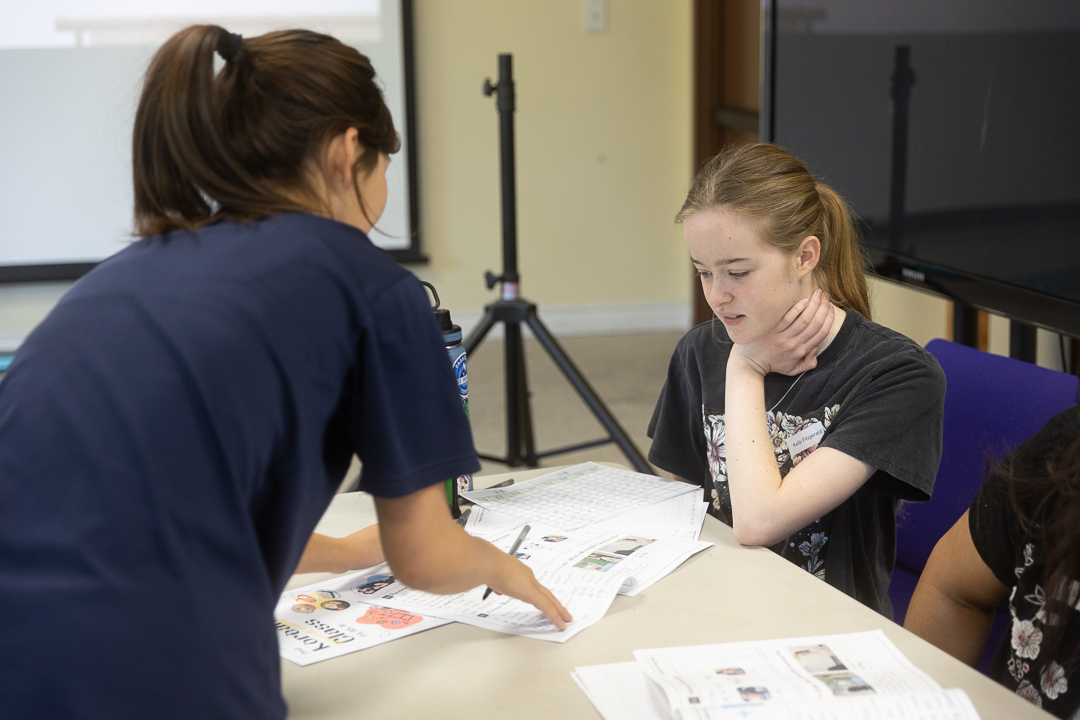An increasing demand for lactation education has surfaced this fall semester at CSUN, and thanks to Dr. Merav Efrat, those demands are being met through courses, research, and curriculum development.
In 2010, Efrat began her first lactation education course at CSUN with the support of a U.S. Department of Agriculture grant. She has 10 years of experience as a health educator, and most recently, she has years of experience as a lactation educator and consultant.
Before Efrat’s push for lactation education at CSUN, the nearest training courses were offered at UC San Diego.
Efrat lists some of the barriers that women face when trying to breastfeed, such as lack of support in the workplace, knowledgeable healthcare providers, and accurate information regarding the topic.
“When I first breastfed my daughter, it was really hard,” said Efrat. “I was really embarrassed to breastfeed in public – and after a couple of months, it became easy and natural.”
She did not have a lot of support besides her colleagues, but it was an interest of hers as a public health educator.
“I didn’t care. I knew it was something I wanted to do and it was good for my kids,” said Efrat.
According to womenshealth.gov, breastfeeding lowers the baby’s risk of asthma, childhood leukemia, childhood obesity, ear infections, eczema, type 2 diabetes, sudden infant death syndrome, and other health problems. Simultaneously, it also lowers the mother’s risk of type 2 diabetes, breast cancer, and ovarian cancer.
“We do speak about [breastfeeding] a lot in classes,” said Ana Maria Anguiano, a public health major, “and if more students became aware of the health benefits, maybe the stigma would go away.”
Efrat uses an infographic, created by the program “Women, Infants, and Children,” to explain why healthcare providers’ leniency towards infant formula is not always the best supplement. It displays a side-by-side comparison of all the nutrients found in breastmilk as opposed to formula. Among those nutrients, breast milk surpasses infant formula with nine extra nutrients.
“This class is my contribution to promoting breastfeeding in the community,” said Efrat, “because I am educating not only future healthcare professionals, but the students who take my class are future parents.”
Though she enjoyed her journey from health education to clinical consultations, she missed teaching. She went back to school and got her doctorate’s degree from UCLA, and is now a professor at CSUN.
She remembers thinking, “I need to teach again because that’s what I love the most.”
Efrat teaches mostly undergraduate and graduate students who are public health majors. Her favorite teaching moments are witnessing students’ excitement and engagement on the topic of breastfeeding and seeing how they apply it to everyday life.
“It helps bring more practical experience to the classroom,” said Efrat. “I think it makes a difference when you know what it is really like. It’s more interesting to students than when you’re just talking about the textbook.”
This semester, Efrat’s lactation education class was quickly filled with eager students who have recognized breastfeeding as an important public health topic, and the wait-list contains approximately 30 names.
Tiffany Huang, a public health major, tried taking the class this semester but did not reach capacity. However, she is going to try again next semester.
“I think it’s really cool that we have that class,” said Huang. “I would like to become certified one day. It’s nice to have an extra skill.”










